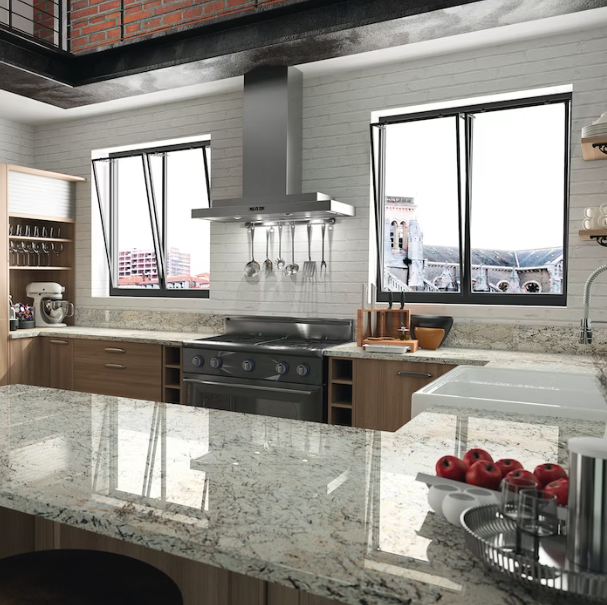Granite 101: The Pros and Cons of Granite Countertops
Known for their gorgeous aesthetics, granite countertops are staples in kitchens and bathrooms. Even though the material is more expensive than other countertop options, people still prefer granite because of its beauty and durability.
If you’re weighing your options for your new countertops, here are some pros and cons of granite countertops to help you out.
The Pros of Granite Countertops
Only a few countertop materials can rival granite. Whether you want a traditional or modern kitchen aesthetic, granite countertops will take it to the next level in terms of visuals and quality.
Granite is a natural, scratch-resistant stone. The material scores seven on the Mohs scale, which tests the hardness of minerals. This means that very few things can scratch it. As such, it’s a bad idea to work on your granite surface directly, as this will dull your knife blades.
Countertops made from granite are also heat-resistant. Their surface doesn’t warp or blister even when near a range or cooktop. However, constant and excessive exposure to heat can still damage granite. Thus, experts advise using trivets when placing your hot pans and pots on the surface.
Granite countertops are the ideal choice if you are looking for a countertop that is resistant to stains and can be safely exposed to liquids. When properly sealed, granite surfaces won’t absorb liquids – making them perfect for kitchen and bathroom installations.
This material is highly sustainable as well. A quarry can provide thousands of stone slabs for commercial and residential needs. The slabs also need minimal processing, so no toxic chemicals or harmful emissions are involved. Apart from sealing, granite also doesn’t require the use of chemicals during installation.
Another advantage of granite is that it offers a unique appearance; no two slabs will look the same. And with that uniqueness comes great value, since granite countertops will help increase the resale value of your home.
The Cons of Granite Countertops
While there are many advantages to getting granite countertops, there are also things that you need to consider before you shop. Despite its durability and beauty, granite has a few weaknesses.
When improperly sealed, granite surfaces become vulnerable to the damage caused by liquids such as wine, juice, or oil. Granite is naturally porous, so its surface is prone to stains when left unsealed. Poorly sealed granite can also harbor bacteria and cause health hazards when it comes into contact with food.
Price is one of the main things to be cautious about in granite. Since it’s a natural stone and is considered premium building material, it will not come cheap. In addition, there are minimal options for repairing granite. And if your countertop gets cracked, a replacement will also be costly.
Should You Buy Granite?
Yes! Though it requires careful and easy maintenance, there’s no discounting the fact that granite countertops are elegant and command attention, whether it’s in the kitchen or bathroom. If you’re looking for high-quality granite countertops, Granite au Sommet is the place to go. We manufacture, distribute, install, and repair various countertops and shower bases, including granite and marble. Contact us for more information!


